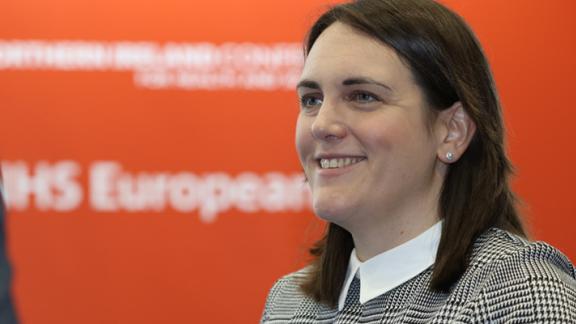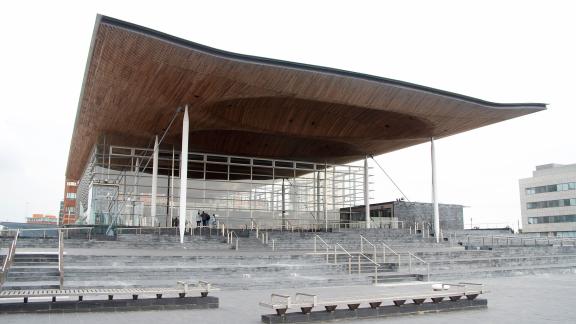How the arts tackle loneliness and isolation during COVID-19

Throughout the last few months, the arts have played a critical role in supporting the health and wellbeing for the people of Wales, writes Nesta Lloyd-Jones, assistant director of the Welsh NHS Confederation.
2020 will go down in history as possibly the biggest challenge the NHS has faced in its 72 years due to the outbreak of COVID-19.
To decrease the pressure on the healthcare system as much as possible, public health measures were implemented to reduce the spread of the pandemic and give the NHS the space it needs to save lives. For months now, our ‘new normal’ has involved social distancing, staying at home and living under lockdown.
While these measures are essential to reduce the burden on the NHS, and wider public sector services, the sacrifices we are making now to #staysafe and #savelives are impacting greatly on the mental health and wellbeing of the nation, especially those who are the most lonely and socially isolated.
This week is #LonelinessAwarenessWeek. In Wales, the arts and health sectors continue to work together to connect people while we are apart and mitigate the negative health outcomes of these experiences.
Loneliness and social isolation were increasing among our population, most significantly with the elderly, before the onset of COVID-19. Factors including physical isolation, lack of companionship and limited access to transport, to name just a few, all contribute to feelings of loneliness and social isolation.
The effects of social and emotional loneliness on physical and mental health and wellbeing are extensive. Evidence suggests that loneliness is associated with increased risk of dying, sleep problems, abnormal stress response, high blood pressure, poor quality of life, frailty, increased risk of heart attack and stroke, depression and increased risk of dementia.
Now, physical distance between loved ones and families and is increasing feelings of loneliness and social isolation. In recent weeks older people have been experiencing feelings of anxiety and depression from spending increased amounts of time alone and away from their families. These feeling occur for those that manage to stay in their own homes and are especially acute for those in care settings or are shielding who may not have seen friends or families for months.
But feelings of loneliness and social isolation are not only experienced by older people. The longer lockdown rules apply the more these feelings are experienced by people across our community. Whether your living alone under lockdown, cut off from your support network, or have not been experiencing the same level of day to day interactions with friends, families, or even strangers on the street, no one is immune to feeling lonely or isolated at times.
We all have experienced these feelings at least once during lockdown – and it’s important to share these experiences and learn from each other on interventions and methods to balance our feelings.
Just as in a pre-COVID environment, the NHS is working collaboratively with the arts sector to continue to amplify the many health benefits that come with participation in the arts and being culturally active. Effective action to combat loneliness and social isolation is best delivered in partnership. That’s why the Welsh NHS Confederation and the Arts Council Wales MOU, signed in 2017, is one way we have committed to ensuring joint working to support the people of Wales.
Our recent briefing provides a snapshot of some of the great initiatives across Wales to connect people during these unprecedented times. Participation in the arts has proven to have widespread mental health, physical health and overall wellbeing benefits. including supporting the immune system, growing social bonds, reducing stress and depression. All of these outcomes have reduced the impacts of loneliness and social isolation, especially during these unprecedented times.
The briefing also highlighted the vital role that technology has played. Whether it’s using virtual platforms for a choir singalong, using social media to continue to teach dance classes, or using multimedia sources to share tips and tricks on tackling feelings of loneliness, the arts sector quickly adapted to the changing environment to support people in their own homes.
But those who do not have the infrastructure or skills to participate in the arts online are particularly vulnerable to feelings of loneliness and isolation during Coronavirus.
The NHS and the arts are working diligently to ensure that even the most at-risk populations are still connected. Initiatives range from activity packs delivered to people’s doorsteps in food packs to using DVDs to help adults with learning disabilities continue their dance practice.
Throughout the last few months, the arts have played a critical role in supporting the health and wellbeing for the people of Wales. We must keep up this momentum and transport the lessons we’ve learned over this time into what we want the future to look like. By working together, we can ensure that there is at least ‘one less lonely voice’ a post-COVID world is less lonely and connects more people than ever before.
#LetsTalkLoneliness
Nesta Lloyd-Jones is the assistant director of the Welsh NHS Confederation



